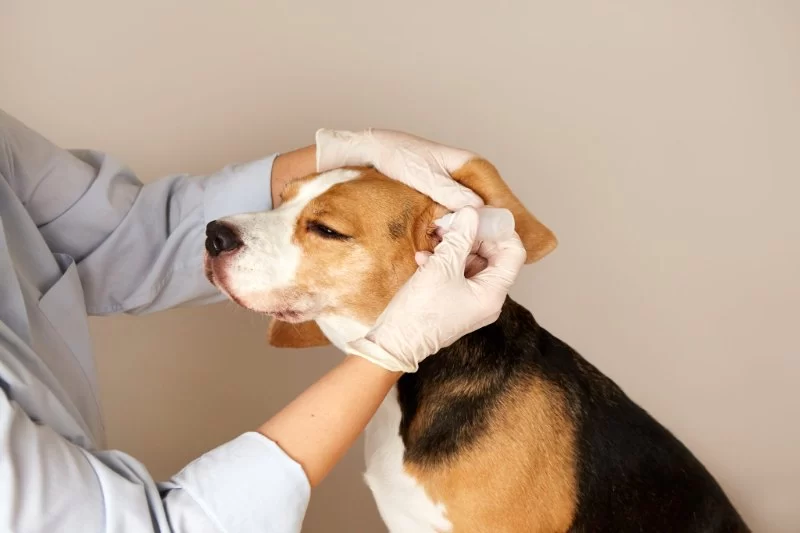- 1. How to Recognize Pet Ear Infections
- 2. Common Causes of Pet Ear Infections
- 3. Treatment Options for Pet Ear Infections
- 4. How to Prevent Ear Infections in Pets
- 5. When to Seek Veterinary Help
1. How to Recognize Pet Ear Infections
Ear infections are a common issue in pets, particularly in dogs and cats. Recognizing the signs early can help prevent the condition from worsening and ensure your pet gets the necessary treatment. The most common symptoms of pet ear infections include:
- Scratching or Rubbing Ears: Pets with ear infections often scratch their ears or rub their heads against furniture or the ground due to discomfort.
- Head Shaking: Shaking the head repeatedly can be a sign that something is bothering your pet’s ears.
- Odor: A strong, foul smell coming from your pet's ears is a common indicator of an infection.
- Redness or Swelling: Inflamed, red, or swollen ear canals may suggest an infection.
- Excessive Wax or Discharge: Pets with ear infections often have a dark, waxy discharge or pus coming from their ears.
- Changes in Behavior: If your pet is unusually irritable or seems to be in pain when you touch their ears, it could be due to an ear infection.
As soon as you notice any of these symptoms, it’s important to act quickly to prevent the infection from spreading or becoming more severe.
2. Common Causes of Pet Ear Infections
Pet ear infections can be caused by various factors, ranging from environmental influences to underlying health conditions. Some of the most common causes include:
- Ear Mites: These tiny parasites can cause severe irritation in a pet's ears, leading to infections if left untreated.
- Bacterial or Fungal Infections: Bacteria or fungi, such as yeast, can overgrow in the ear canal, especially in warm, moist environments, causing infection.
- Allergies: Allergies to food, pollen, or dust mites can result in ear inflammation, making pets more susceptible to ear infections.
- Moisture and Humidity: Pets that frequently swim or live in humid environments are at a higher risk of developing ear infections due to moisture buildup in the ears.
- Foreign Objects: Dirt, debris, or foreign objects like plant material can get trapped in the ear canal, causing irritation and infection.
- Underlying Medical Conditions: Conditions such as hypothyroidism or autoimmune diseases can predispose pets to ear infections.
3. Treatment Options for Pet Ear Infections
Treating ear infections in pets is crucial to avoid complications. The treatment will depend on the cause and severity of the infection. Here are some common treatments:
- Ear Cleaners: A gentle ear cleaner recommended by a veterinarian can help remove excess wax and debris, reducing the risk of infection.
- Topical Medications: If the infection is caused by bacteria or yeast, your vet may prescribe topical antibiotics or antifungal creams or ointments to treat the infection.
- Oral Medications: In more severe cases, oral antibiotics or antifungals may be required to address the infection internally.
- Anti-Inflammatory Medications: If there is swelling and pain, anti-inflammatory drugs may be prescribed to reduce discomfort and inflammation.
- Ear Flushing: In some cases, the vet may need to flush the ear canal to remove deeper debris or infection-causing material.
It’s important to follow your vet’s instructions carefully and complete the full course of treatment to ensure the infection is completely cleared.
4. How to Prevent Ear Infections in Pets
Prevention is key when it comes to ear infections in pets. While not all infections can be avoided, you can take steps to reduce the risk:
- Regular Ear Cleaning: Clean your pet’s ears regularly using an ear cleaner recommended by your vet, especially if they are prone to ear infections.
- Keep Ears Dry: After swimming or bathing, dry your pet’s ears thoroughly to prevent moisture buildup, which can lead to infections.
- Manage Allergies: If your pet suffers from allergies, work with your vet to manage their condition to reduce the risk of ear infections.
- Avoid Irritants: Minimize exposure to known allergens or irritants that could cause inflammation in the ears.
- Check for Foreign Objects: Regularly inspect your pet’s ears for debris, dirt, or other foreign objects that may cause irritation or infections.
5. When to Seek Veterinary Help
While some mild ear infections may improve with basic care, it’s important to seek veterinary help if:
- The infection does not improve or gets worse despite treatment.
- Your pet shows signs of severe pain or discomfort when their ears are touched.
- You notice a significant change in your pet’s behavior or activity level due to ear problems.
- There is a strong or persistent odor coming from the ears.
- The ear infection recurs frequently or causes chronic issues.
At Hidden Brook Veterinary, we offer expert care for pets with ear infections and other health issues. Our team is here to help diagnose and treat your pet’s ear problems effectively, ensuring they stay healthy and happy.












